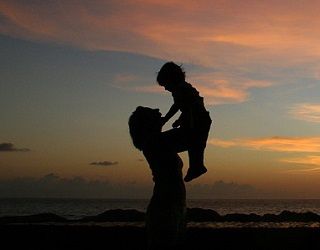From Guest Blogger Izzy: Teach Children Green Habits for Life

For example, environmental concerns are becoming increasingly widespread, but there are still several hurdles in the way of society in general becoming kinder to the planet. There is a general feeling of “I’m just one person, what can I do?” not helped by the knee-jerk reaction of some who think caring about the environment automatically makes a person a “tree hugging hippie.”
So how do parents who want to raise environmentally aware kids go about the task? Well here are some tips we’ve curated that can give them the best chance of becoming eco-sensitive adults.
Green energy
Straight off the bat, start by doing all you can to make your home as environmentally sound as possible. The major change you can make is installing solar panels. They offer green energy harvested from sunlight, and can last for many years. Team this with energy efficient lightbulbs & appliances, and it will all become second nature to them by the time they are older.
Furthermore, try to make everything in your house eco-friendly. Anything wooden should be harvested from sustainable sources. The same goes for any other furniture in your house. Sometimes, there may be no getting around buying something that isn’t strictly kind to the planet, but if these items are in the minority, you have done all you reasonably could so set a good example.
Green food
Sustainability should extend to your food as well. Ideally, you’ll have a thriving local community that can supply you with most of what you need, but supermarkets are starting to provide a wider selection of sustainable produce.
However, there is a change you can make that takes this habit to the next level. If at all possible, start growing your own fruit and veg, and include the kids in the process. In fact, it may be better long term if you show them how to grow vegetables without a garden. You are limiting what you can grow, but you’ll be showing them that you don’t need an expanse of land to grow your own food.
Recycle and save
Recycling is becoming more mandatory already, with some local governments refusing to collect rubbish unless locals recycle their rubbish. But this shouldn’t be seen as a chore. On top of sorting out rubbish, try to repurpose items too. Look online to see if any non recyclable items can be turned into something else (think turning old water bottles into makeshift plant pots).
Also, start recycling the utilities you use. Teach the kids to turn off water, lights, and electrical equipment if they aren’t being used. these amount to small savings, but they all add up, and will continue to add up over a lifetime.
Show them the benefits
This is the most important tip of all. It is absolutely vital that kids see that the hard work they are putting towards being eco-friendly isn’t going to waste. Hopefully there will be tangible benefits, like vegetables they have grown themselves, or appliances they have made out of other items. You could even show them your declining water bills if saving water is making a sizable dent.
If not, show them documentaries about the benefits of living cleanly. Be they documentaries or educational videos, make sure they see the benefits of living cleanly, or the downfalls of not protecting the environment. This will hopefully bread the responsibility required to carry these habits through life, before they are eventually passed on to future generations.
